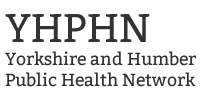Genomics, its implications for Public Health
28 November 2017
Date and Time:
Tue 28 November 201709:30 – 15:30
Location:
BirminghamCost:
Free
Share with friends
Health Education England in the West Midlands, presents as part of the West Midlands Public Health Practitioner Scheme and in conjunction with HEE Genomics Education Programme:
Masterclass: Genomics, its implications for Public Health
'Genomics is to the 21st century what infectious disease was to the 20th century’[1]
As genetic and genomic advances impact progressively on every area of healthcare and scientific research, understanding the implications for the practice of public health and policy becomes paramount.
Genetics typically refers to the study of single genes and their effects. Genomics, however, is the study of all an organism’s genetic information, known as the genome. This includes both the coding and non-coding regions. Genomics should be considered in every facet of public health: infectious disease, chronic disease, occupational health, environmental health, in addition to maternal and child health.
Genomics is impacting the main pillars of public health.
- In health protection, genomics is changing the way communicable diseases are detected, protected against, treated, surveyed & researched.
- In health service quality, commissioning & planning its impact is felt in all clinical specialties as diseases are redefined, reclassified & sub-classified according to genotypes. Pathways of care are being redefined & new tests & drugs that utilise the new genomic technologies are increasing.
- In population screening programmes, a 'one size fits all' approach is increasingly becoming questionable as the population can be stratified based upon genetic risks.
- In health improvement, we can no longer just concentrate on the environmental factors & ignore the impact of individual’s genomes on both the development of conditions, but also their response to interventions.
This workshop is an opportunity for anyone in the UK who contributes to the public’s health to learn more about genomics and how it can impact their own work, hearing from key leaders in the field.
Aims of the event include:
- To raise awareness & provide an overview of genomics & its impact in Public Health
- To present practical examples of the use of genomics by the public health workforce
- To improve understanding of the different ways genomic information can influence patient care & behaviours
- To provide an opportunity to explore own role in genomics within public health
The event is free though a cancellation fee may be charged for non-attendance. For any queries, please contact Sally James, Public Health Workforce Specialist, Health Education England in the West Midlands (sally.james@hee.nhs.uk tel. 0121 695 2481).
Welcome & introduction
(Anneke Seller, Scientific Director, Genomics Education Programme, Health Education England)
What is Genomics? 100,000 Genomes Project, genomics & public health
(Tom Fowler, Director of Public Health, Genomics England)
Genomic technologies
(Jo Mason, Director of Sequencing and Sample Acquisition, Genomics England)
Infectious diseases, genomics & public health
(Nick Loman, Professor of Microbial Genomics & Bioinformatics, University of Birmingham)
Workshop One – how might genomics impact on my role? An opportunity to explore genomics across different public health scenarios
Non Invasive Prenatal Testing
(Annette McHugh, Programme Manager for NHS Fetal Anomaly Screening Programme, Public Health England)
Ethical & legal considerations of genomics in public health
(Anneke Lucassen Professor of Clinical Genetics, Wessex Clinical Genetics Service)
Workshop Two – discussion in small groups about ethics in the context of how genomics can be used
Education / Q&A – who needs to know what about genomics in the PH workforce & how do we get there?
(Anneke Seller, Scientific Director, Genomics Education Programme, Health Education England)
